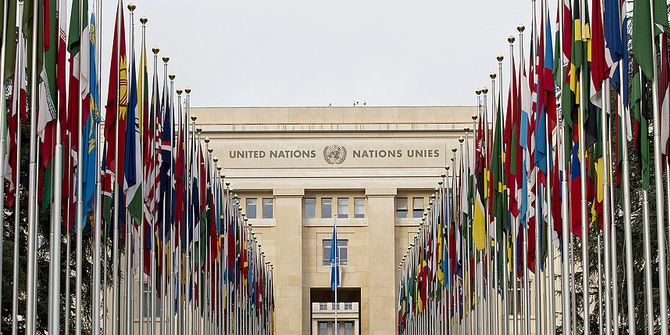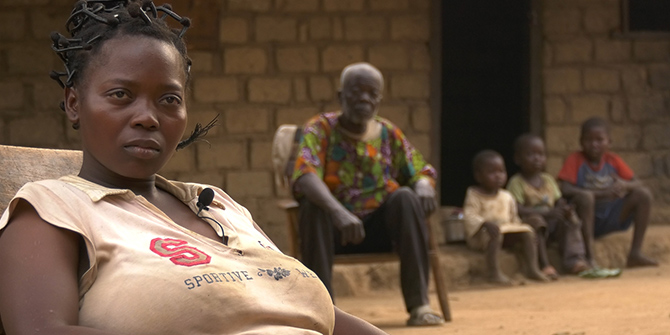International aid agencies often ask local religious leaders to use their influence on the ground to consolidate support for development projects and to provide theological justification for such policies. While this approach can be helpful, Themrise Khan argues that it can be harmful and counter-productive as the tactic further legitimises the authority of religious leaders who can control local populations through fear and oppression.

It is no secret that Islam holds a fascination for Western academics, practitioners and policymakers. This includes a growing trend of international aid assistance targeting low- to middle-income, predominantly Muslim, countries in efforts to alleviate poverty and enhance development.
One of the approaches used by international aid agencies in such efforts is the inclusion of religious clerics in addressing systemic issues of abuse, particularly against women. As a woman from a Muslim country, and a long-time development practitioner, I find this approach both problematic and dangerous.
The most prominent use of this approach has been in eradicating the practice of Female Genital Mutilation (FGM) or female circumcision in Africa, the Middle East and Asia. Several bi-lateral and multi-lateral aid agencies have embraced the idea of working with community-based religious clerics to declare the practice as un-Islamic and to therefore eliminate its use.
For example, a recent Joint Evaluation of a UNFPA-UNICEF programme has supported Islamic leaders in Senegal to develop a religious argument explaining how FGM is not an Islamic requirement. The report claims that the “active support of FGM from influential Islamic leaders creates an insurmountable barrier to changing behaviour among communities who are followers of these religious leaders”.
Similarly, a statement issued by UN Women on the International Day of Zero Tolerance for Female Genital Mutilation highlights the need for “religious leaders to strike down myths that female genital mutilation has a basis in religion”.
A multi-donor-funded project in Senegal which used public declarations as a way of denouncing FGM/child marriage did so with the involvement of religious leaders who claimed that “Islam was not opposed to abandoning traditional practices deemed harmful to the people’s health”.
And FGM isn’t the only area where Western donors feel the need to include religion as an agent of change. Activists supported by a Canadian-funded project in Mozambique on safe abortions found support for this cause by finding passages in the Quran and the Bible that could be interpreted as endorsing family planning and women’s rights.
There are several contradictions and concerns emerging from such an approach. Not the least of which is that many of these harmful practices are targeted towards women, about whom the teachings of Islam have the most wide-ranging interpretations. For instance, there are multiple stands on whether the Quran actually instructs women to wear the hijab or niqab, reaching no common agreement.
In the case of FGM, where research has shown that it is practiced as an act of controlling a woman’s body for the benefit of men, invoking the call of (male) religious clerics clearly brings religion into a context where there is no place for it to begin with.
This sets a dangerous precedent because religious elders in many Muslim communities in Africa and Asia hold immense control over their wards. Making them a focal point of engagement gives them the added importance of being able to exercise further control. Instead of weakening the control of religion on societal norms and values, such engagement further legitimizes it.
It is true that other forms of interventions such as legislation and government interventions have been less successful in eradicating such practices. But it is also the case that it is mostly women who also dominate the practice and control of such rituals. Research has shown that educating young girls is a far more effective way of tackling FGM. But as this takes much longer, it is not quite as attractive for development practitioners who require a faster pace of attribution.
Most importantly, using religion as one of the main avenues to foster development removes the notion of the practice as one that violates fundamental human rights. It gives rise to the idea that every such violation can be remedied with the approval of religious enforcers. This would then include issues like child marriages, honour killings, marital rape, domestic abuse etc., none of which is sanctioned in Islam but all of which have been carried out by religious enforcers who have been given the opportunity to play the role of both abuser and adjudicator.
There are many other examples where Islam has been invoked by conservative religious groups to incite fear and exercise control over the marginalized. In Pakistan, polio-prevention drives were denounced by such groups as being un-Islamic and a Hindu invention. Similarly, religious leaders have spread much misinformation about male sterilization as creating sexual disfunction among men. An infamous religious edict issued in the 1990s by Iran’s Ayatollah Khamenei announced, overnight, that vasectomies were permissible for men, but only to curb its burgeoning post-revolution population.
Working with religious elders, particularly in vulnerable communities, gives more power to the exact same groups many of us in the Muslim world, especially women, are fighting to regain power from. It normalizes the notion that the power lies in their hands alone.
Development programming needs to get communities to stand up to these religious lobbies, not to co-opt them. Such groups should definitely be part of a set of approaches that educate the community overall. But they should not be allowed to control the narrative on women’s rights, particularly at the expense of further sidelining women themselves.
And while legislation and government programming may have failed to bring about vital changes in perception and practice, they still remain the more enforceable methods to fight poverty and marginalization. No matter how long it takes.
Note: This piece gives the views of the author(s), and not the position of the LSE Religion and Global Society blog, nor of the London School of Economics.




